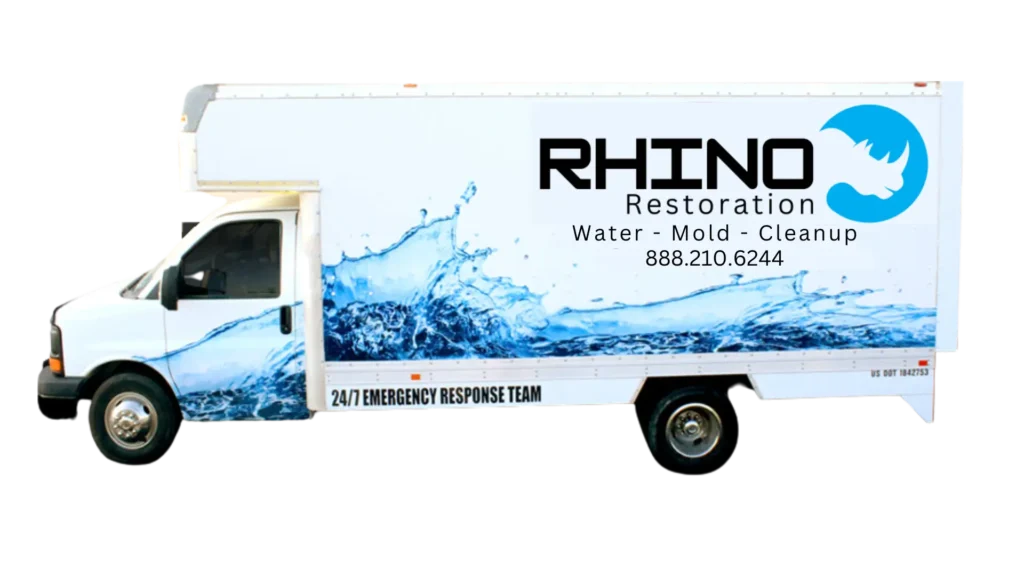WESLEY CHAPEL Florida
Rhino Restoration: Your Trusted Wesley Chapel Restoration Experts and Local Restoration Service in Wesley Chapel.
When disaster strikes in Wesley Chapel, Rhino Restoration is here to help bring your home back to life. Serving Wesley Chapel and surrounding communities throughout the Bay Area, we specialize in restoring properties affected by water damage, mold and storms. With Wesley Chapel‘s unique weather patterns, including frequent afternoon thunderstorms and hurricane season, our local expertise ensures we can handle any challenge Mother Nature throws your way. We understand how stressful these situations can be, and our dedicated team is committed to providing you with peace of mind during your restoration journey.
At Rhino Restoration, we offer a full range of services tailored to meet the specific needs of Wesley Chapel homeowners. Whether you’re dealing with extensive water damage from a tropical storm or flooding during the rainy season, or combating minor mold growth due to the area’s humidity, we provide customized solutions for every home. Our team is trained to respond quickly, ensuring that we tackle the problem before it worsens. With our focus on quality and care, you can trust us to restore your Wesley Chapel home efficiently and effectively, bringing it back to its pre-damage condition.
RESTORATION SERVICES WE OFFER
- Emergency Water Removal
- Water Damage Assessment
- Structural Drying
- Dehumidification
- Contents Cleaning and Restoration
- Odor Removal
- Sewage Cleanup
- Burst or Leaking Pipe Repair
- Insurance Claim Assistance
- Commercial Water Damage Restoration
- Storm Damage Restoration
- Crawl Space Cleaning and Restoration
- Appliance Leak Cleanup
- Carpet and Upholstery Cleaning
EMERGENCY DISASTER RESTORATION
- Our Service Areas
Rhino Restoration works hard to help you feel at ease after a disaster. We fix your property fast and get things back to normal with our complete restoration services.
- Brandon
- Hillsborough County
- New Port Richey
- Pasco County
- Pinellas County
- Plant City
- Polk County
- Springhill
- St Petersburg
- Clear Water
- Tampa
- Lutz
- Wesley Chapel
- Dunedin
- Palm Harbor
- Land o Lakes
- Largo
- Pinellas Park

GET EXPERT HELP TODAY!
Why Choose us
24/7 Availability
Disasters don’t wait, and neither do we. Our team is ready to respond to your emergency any time, day or night.
Rapid Response
We pride ourselves on reaching your location quickly to prevent further damage and start the water removal process immediately.
Certified Experts
Our technicians are trained, certified, and experienced in handling water damage of all sizes and complexities.
Insurance Assistance
We work directly with your insurance company to simplify the claims process and reduce your stress.
ABOUT WESLEY CHAPEL, FLORIDA

Wesley Chapel is one of the fastest-growing communities in Pasco County — known for its modern master-planned neighborhoods, new commercial developments, golf courses, shopping districts, and family-friendly communities. Areas like Seven Oaks, Meadow Pointe, Wiregrass, Epperson Lagoon, Country Walk, Saddlebrook, and New Tampa/WC corridors make Wesley Chapel a top destination for families and businesses.
But the region’s rapid growth combined with Florida’s climate brings certain property risks. Wesley Chapel experiences heavy rainfall, storm runoff, high humidity, plumbing leaks, HVAC failures, roof damage, sewer backups, and flood-prone zones — all of which can cause water damage, mold growth, foundation issues, and fire or electrical hazards.
Rhino Restoration proudly serves all of Wesley Chapel with 24/7 emergency restoration services. From storm damage and flooding to mold, water leaks, and fire incidents, our certified restoration team responds quickly to secure your home or business and restore it safely and efficiently.
FREQUENTLY ASKED QUESTIONS ABOUT RESTORATION SERVICES IN WESLEY CHAPEL, FL
Property damage can be stressful — especially when it happens suddenly from storms, plumbing failures, mold, or fire. To help Wesley Chapel homeowners and business owners understand what to expect, we’ve answered the most common questions about emergency response, insurance assistance, cleanup timelines, and the restoration process. These FAQs make every step clear and manageable.
How fast can your team reach Wesley Chapel?
We provide 24/7 rapid emergency response throughout Wesley Chapel, including Seven Oaks, Wiregrass, Epperson Lagoon, Saddlebrook, Meadow Pointe, and surrounding communities.
Do you help with insurance claims?
Yes. Our team documents all damage, assists with claim submission, and works directly with your insurance adjuster to simplify the process.
What restoration services do you offer in Wesley Chapel?
We provide water damage restoration, mold remediation, fire and smoke damage repair, storm cleanup, flood extraction, odor removal, sanitization, and full structural restoration.
Is mold common in Wesley Chapel?
Yes. The area’s humidity, new-construction moisture issues, and frequent storms make mold very common. We provide professional mold inspection, moisture testing, and certified remediation.
Driving Directions
Here are sample driving-direction sections you can use for your map cards:
WESLEY CHAPEL
TAMPA
WESLEY CHAPEL
LAND O’ LAKES
WESLEY CHAPEL
NEW TAMPA / LUTZ
GETTING HERE: TRANSIT INFORMATION IN WESLEY CHAPEL, FL
Helpful transportation options for residents and visitors:

PASCO COUNTY PUBLIC TRANSIT (PCPT)

HART CONNECTIONS (NEARBY TAMPA REGION)

PUBLIC PARKING & COMMUNITY CENTERS
WESLEY CHAPEL, FL LOCATION & CONTACT INFORMATION
Call now to speak to our Emergency Service Team


Rhino Restoration is committed to helping you recover after disasters, bringing your property back to normal with care and expertise. We provide a full range of restoration services to meet all your residential needs.
Mold License #: MRSR5353
- WESLEY CHAPEL, FL, USA
About
Contact
Copyright © 2024 Rhino Restoration
